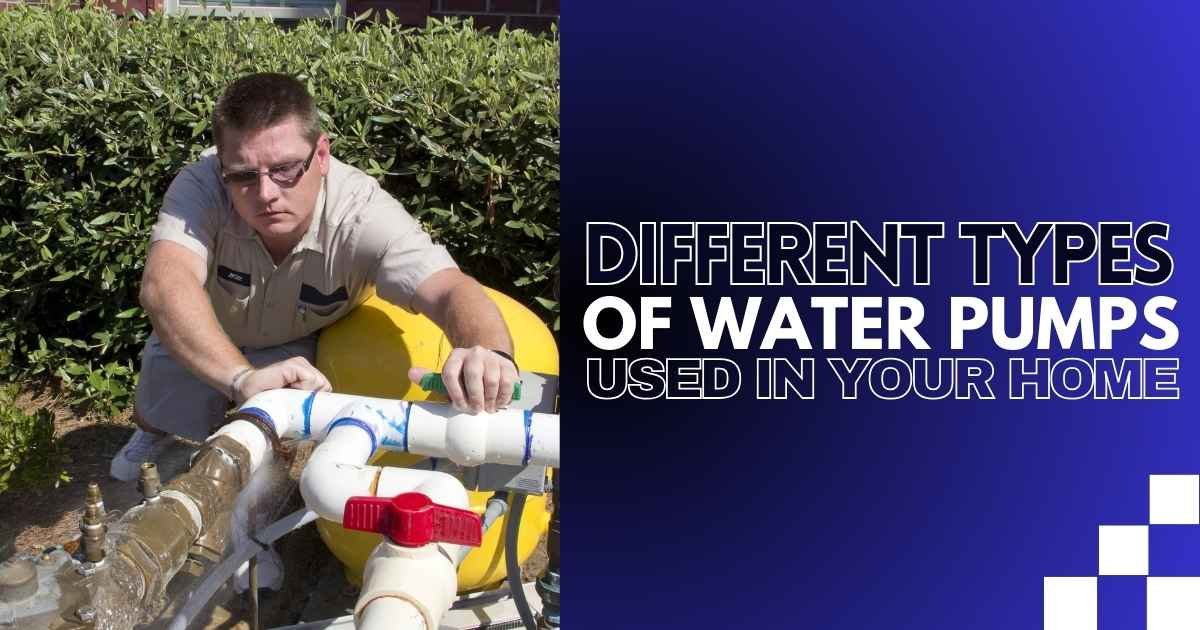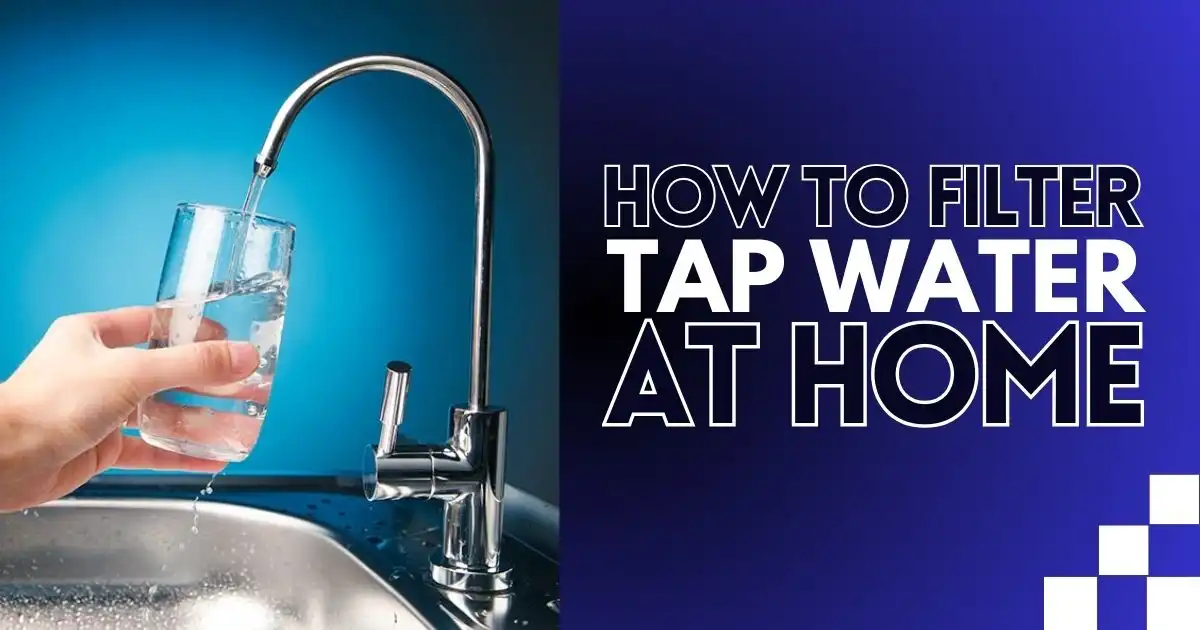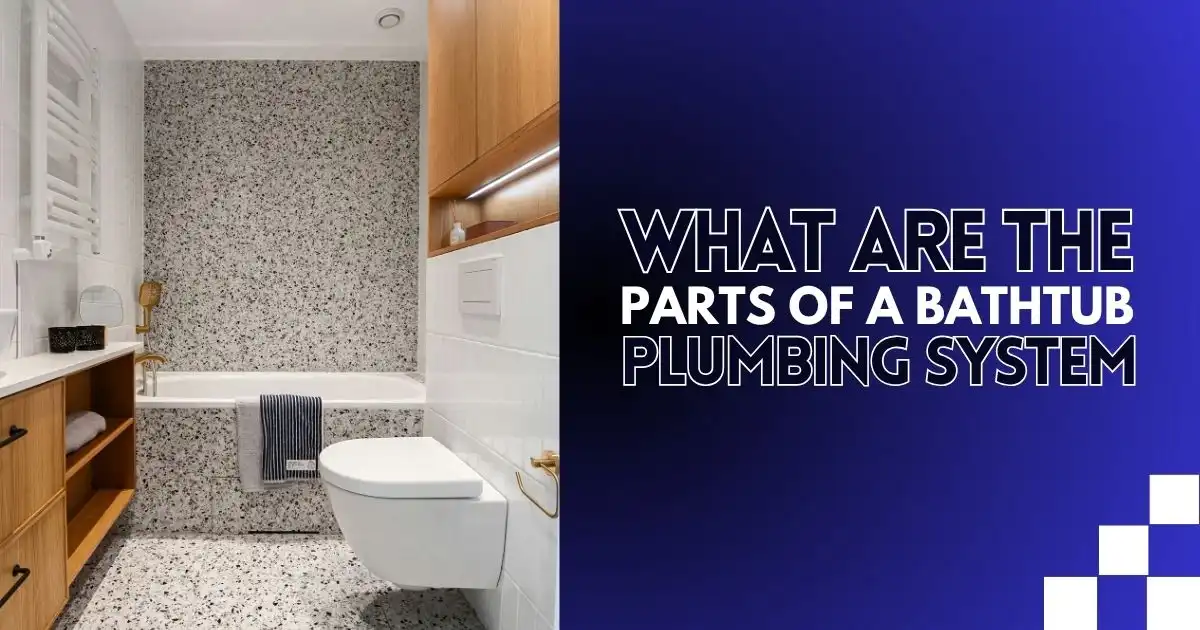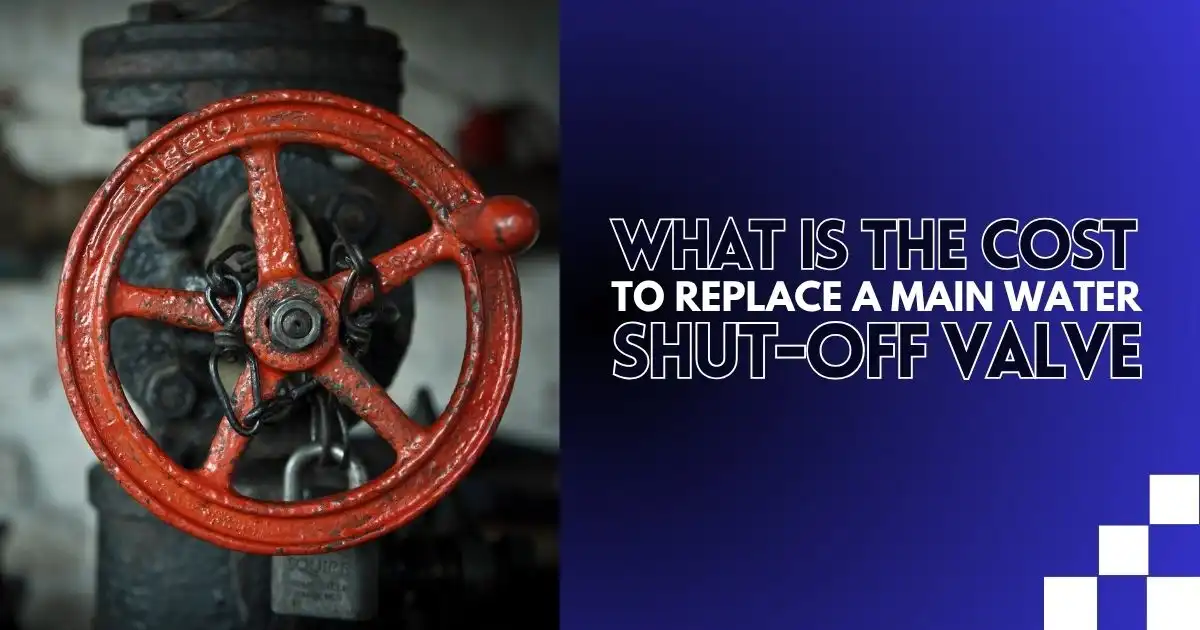Building or renovating your home involves a lot of decisions, and one of the most important is how you’ll handle water. From draining excess water after a rainstorm to getting fresh water from a well or managing sewage, having the right system is important.
If you’ve ever dealt with a clogged drain or water in your basement, you know how big a difference the right tools can make. So, have you considered what system is best for your home?
What is a Water Pump?
A water pump is used to move water from one place to another, making it essential for various home needs. Water pumps for homes are designed to quickly change the pressure inside the system, allowing them to efficiently suck in and push out water. Different pumps achieve this pressure change in different ways, making some better suited for specific tasks around the house.
For example, some pumps use a diaphragm that moves back and forth to change pressure, while others use rotating parts to adjust pressure. Pumps are used for different tasks: a boat pump removes water from the hull, while a booster pump increases water pressure in a home. Regardless of the type, all pumps have the same goal: to move water from one place to another.
5 Types of Water Pumps Used in Your Home
Water pumps are essential for many household tasks, from getting water for drinking to irrigation and draining excess water. Here are five common types of water pumps used in homes:
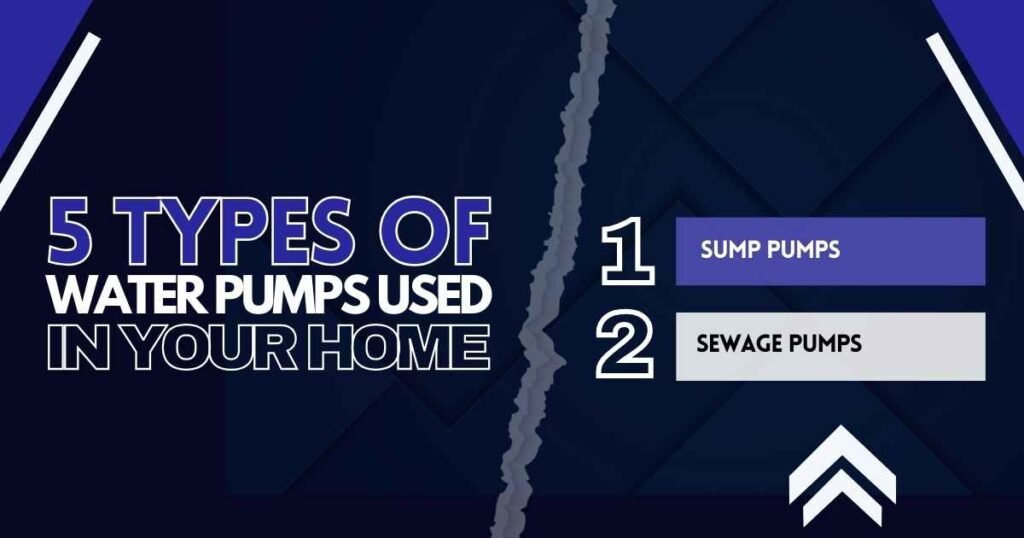
1. Sump Pumps
A sump pump removes water that collects in a sump basin, usually in a basement or crawl space. It helps prevent flooding, especially in areas with heavy rain or high groundwater. The pump turns on automatically when the water level rises and moves the water away from the foundation to keep the house dry and avoid damage.
Sump pumps are useful in homes at risk of flooding or in areas where water tends to gather. They protect the basement and help prevent problems like mold or foundation cracks. Many sump pumps are quiet and efficient, making them a reliable way to keep your home safe from water damage.
2. Sewage Pumps
Sewage pumps, also called sewage ejector pumps, are designed to move waste water from your home to the local sewer system or a septic tank. These pumps are especially important for homes with basements or lower levels where gravity alone can’t move waste properly. Without a sewage pump, wastewater could back up into the home, causing unpleasant and costly problems.
Sewage pumps collect wastewater from sinks, toilets, and drains in lower parts of the house and pump it up to the sewer line or septic system. They prevent blockages and flooding, keeping the plumbing clear. These pumps are helpful in homes below street level or in areas with high water tables, where waste needs extra help reaching the disposal system.
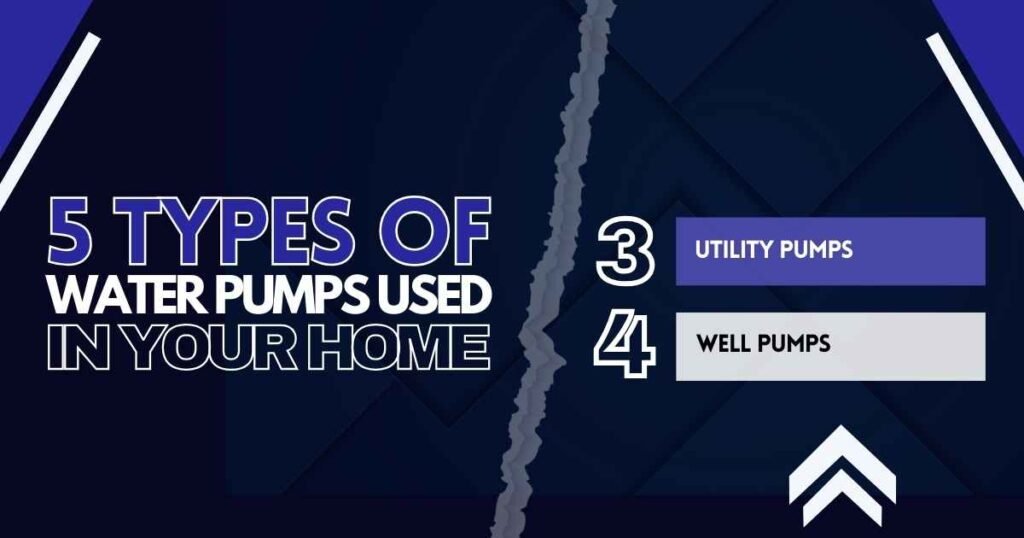
3. Utility Pumps
Utility pumps are flexible devices that can be used for a variety of tasks, like draining flooded areas, emptying hot tubs, or even providing water for gardens. They are portable, easy to use, and great for temporary jobs. Utility pumps are helpful for many different tasks, such as:
- Draining flooded basements: Quickly removing water from basements after heavy rain or floods.
- Draining water heaters: Emptying water from old or damaged water heaters.
- Removing water from pools and hot tubs: Clearing water from pools or hot tubs when they need to be emptied or cleaned.
- Irrigation and gardening: Providing water for garden irrigation or lawn watering systems.
4. Well Pumps
Well pumps are used in homes with wells to bring water from underground sources into the house for drinking and other household uses, like watering the lawn or doing laundry. These pumps bring water from deep underground aquifers into your home’s plumbing system.
There are two main types of well pumps used in homes:
- Submersible well pumps: These pumps are placed underwater in the well and are good at pulling water from deep wells. They are quiet, efficient, and long-lasting.
- Jet pumps: These pumps are used for shallow wells and work by creating suction to pull water up. They are easier to maintain but may not work well with deeper water sources.
Well pumps are essential for homes that rely on wells for their water supply, helping to provide clean, fresh water for daily needs.
Factors to Consider When Choosing a Water Pump
When choosing a water pump for your home, there are several factors to think about, such as pump capacity, water pressure needs, pump efficiency, water quality, and the power source. It can be overwhelming, so if you’re unsure, it’s a good idea to consult a professional to help with installation.
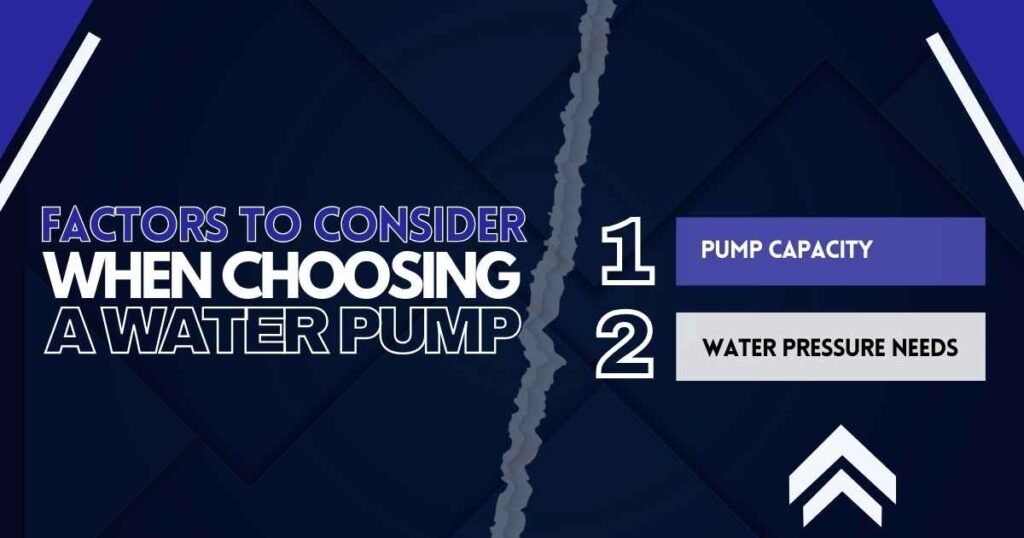
1. Pump Capacity
Pump capacity refers to how much water the pump can move in a given amount of time, typically measured in gallons per minute (GPM). In Las Vegas, where water usage can be high due to the hot, dry climate, it’s important to choose a pump that matches your household’s needs.
For everyday use, a standard pump may be sufficient, but if you have high-demand tasks like irrigation for a garden or lawn, you’ll need a pump with a higher capacity to move larger amounts of water efficiently.
2. Water Pressure Needs
Different household tasks require different levels of water pressure. For example, a sprinkler system or an irrigation system for a garden in Las Vegas will need higher water pressure to cover a larger area.
Showers, dishwashers, or washing machines usually need moderate pressure. Make sure the pump you choose can provide enough pressure for your needs, or it could wear out faster and need repair or replacement sooner. A pump that doesn’t deliver the right pressure may also affect your water flow and cause problems with your appliances.
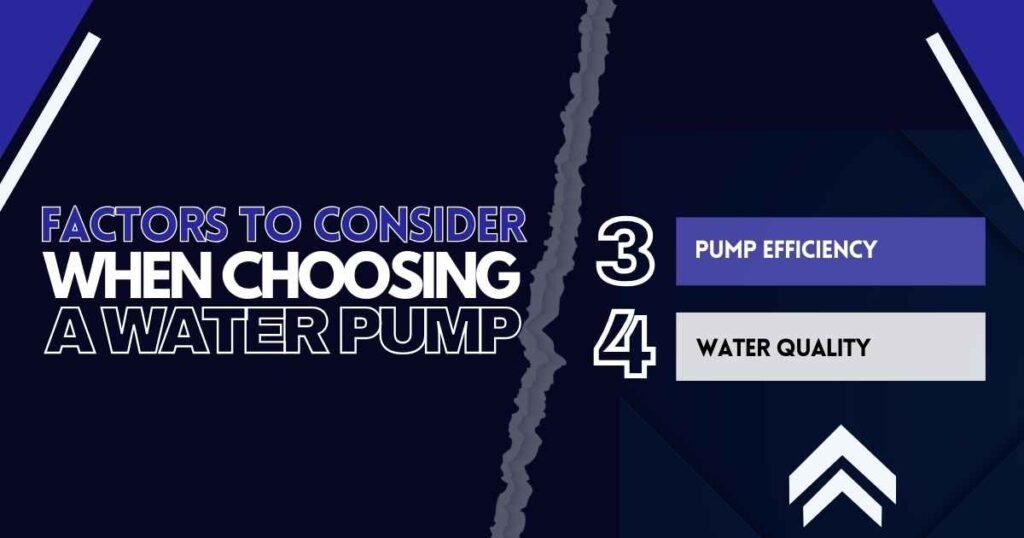
3. Pump Efficiency
Pump efficiency affects both its performance and energy use. In a place like Las Vegas, where electricity costs can be high, it’s a good idea to choose a pump designed to use less energy while still moving water effectively.
Efficient pumps will help reduce your monthly utility bills, which is especially important in a city where air conditioning and water usage can lead to high electricity costs. Look for pumps with energy-saving features, such as variable speed settings, which adjust the pump’s speed based on the amount of water being used.
4. Water Quality
Consider the quality of the water you’ll be pumping. In Las Vegas, well water or water from a local aquifer can sometimes contain minerals or small particles. If you’re pumping water from a well or a source with debris, you’ll need a pump that can handle solids without clogging.
Some pumps come with filters or sediment-blocking features that help prevent clogging. For clean water coming from a city supply or a filtered source, a standard pump will work fine.
5. Power Source
Water pumps can be powered by electricity, gasoline, or solar energy. In Las Vegas, solar-powered pumps can be a great option because of the abundant sunshine, especially if you want to reduce your energy costs and environmental impact.
Electric pumps are also common, but you should have a battery backup in case of power outages, which can happen in extreme weather or due to maintenance issues. Gasoline-powered pumps are an alternative but may require more maintenance and fuel supply management. Consider which power source works best for your location, budget, and reliability.
Find the Right Pump, Save Time and Trouble
Choosing the right water pump for your home is about finding the one that fits your needs, not just picking the biggest or most expensive. Like in life, balance matters—consider efficiency, power, and the task at hand. If you need to drain water or boost pressure, making the right choice now will save you time and trouble later, helping you enjoy a smoother, stress-free home.
Not sure which water pump is right for your home? Vegas Plumbing Pros can help you choose the best option for your needs and ensure it’s installed correctly. Whether you need to drain water, boost pressure, or manage water from a well, our team is here to make the process easy and stress-free. Contact us today for expert advice and reliable service!
FAQs
How many types of water pump?
There are several types of water pumps used in homes. Submersible pumps are placed underwater and are ideal for deep wells or water systems. Jet pumps are used for shallow wells and create suction to move water. Booster pumps are used to increase water pressure throughout the home’s plumbing.
Which type of pump is used in a house?
The type of pump used in a house depends on the specific needs. For example, submersible pumps are often used for wells, while sump pumps are used for water drainage in basements or crawl spaces. Booster pumps are commonly used in homes to increase water pressure, ensuring better water flow throughout the house.
What are the 4 types of pumps?
The four most common types of pumps are centrifugal, diaphragm, piston, and peristaltic pumps. Centrifugal pumps move liquids quickly, diaphragm pumps handle solids, piston pumps are used for high pressure, and peristaltic pumps push fluids through hoses using rollers.
What are types of domestic water pumps?
Common type of water pumps in homes include jet pumps, submersible pumps, booster pumps, and sump pumps. Jet pumps are used for shallow wells and create suction to pull water. Submersible pumps are for deeper wells and are submerged in water. Booster pumps increase water pressure, while sump pumps remove excess water from basements or crawl spaces to prevent damage.
